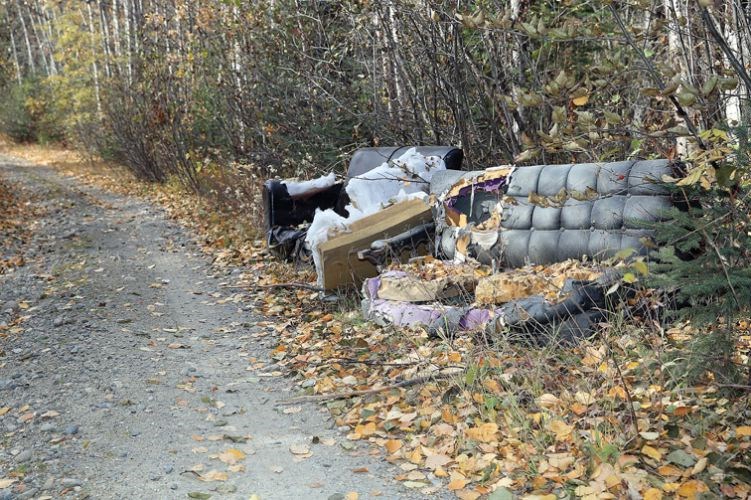A strategy to prevent illegal dumping will be taken to the Fraser-Fort George Regional District board of directors on Thursday.
It puts a particular emphasis on an education campaign to make people aware that a significant portion of illegally dumped waste - yard waste, non-refridgerant appliances and tires - is actually accepted at many FFGRD facilities at no charge.
The campaign would also promote the Recycling Council of British Columbia's Recylcepedia, found at www.rcbc.ca, which shows an array of options for recycling items, as well as provincial government's Report All Poachers and Polluters (RAPP) hotline for reporting illegal dumping.
The campaign would promote the concept that illegal dumping is a "community issue with a community solution" and that the act is "not okay and won't be tolerated."
The strategy also calls for expanding recycling services at FFGRD facilities, particularly rural transfer stations.
As of Jan. 1, major appliances including fridges, freezer and air conditioners will be accepted at no charge at select regional district facilities though the Major Appliance Recycling Roundtable stewardship program.
Currently, the FFGRD charges a $22.50 tipping fee to dispose of appliances containing ozone depleting substances.
The strategy also calls for expanding community cleanup campaigns to include large-item pickup events, hazardous waste roundups and seasonal collection of yard waste.
Signage would also be posted at problem areas showing the fines levied for illegal dumping, RAPP line information and warnings for areas under surveillance.
And owners of private property that have become hotspots for illegal dumping would be encouraged to install gates and barriers, as well as security cameras and signs warning that the area is under surveillance.
The final element is enforcement and to that end, the strategy would give the Conservation Officer Service and bylaw enforcement officers the property authority and resources to carry out enforcement.
Steps would include passing an illegal dumping bylaw, working with COS to establish baseline data on the nature and extent of illegal dumping in the FFGRD, mapping problem sites, and assessing the impact of prevention efforts.
In an accompanying report, it was noted that the FFGRD can waive tipping fees for community cleanup events. In all, it can grant exemptions adding up to $25,000 in a single year but as of October, only four groups have taken advantage, adding up to $6,096 of fees waived.
To date this year, 21 tonnes of material have been collected from 19 locations. The efforts included the Civic Pride Earth Day cleanup events in Prince George, McBride and Valemount, for which $1,800 in tipping fees were waived.



